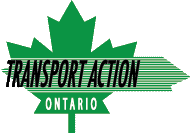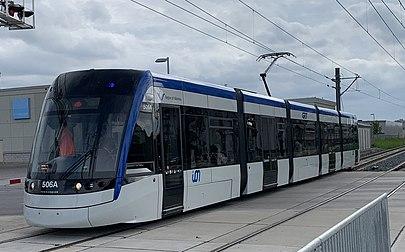By
Transport Action Ontario
|
Latest News ,
Urban Transit
The Waterloo ION LRT is Ontario’s first modern urban LRT line, and has just marked 5 years of successful operation. At our recent Annual General Meeting, Transport Action Ontario members and supporters were given an update from Doug Spooner, Acting Commissioner, Transportation Services, Region of Waterloo. The following is from Doug’s talk plus a review of historical ION files.
Waterloo Regional Council approved the Phase 1 ION LRT project, from Conestoga Mall to Fairview Mall (19 km) in 2011. A 30-year DBFOM procurement model was selected. In March, 2014, a consortium called GrandLinq, with members Plenary, Meridian, Aecom, Kiewit and Keolis was selected as the winning bidder. Council also approved an interim BRT service from Fairview to Cambridge (Galt).
A staff report from March 4, 2014 provided a uniquely transparent amount of detail on the final costs and structure of the GrandLinq project agreement. Capital costs for the Design-Build portion were $532M (independent of inflation), with the consortium paying $131M of initial capital costs, to be repaid later. This total does not include non-DBFOM items like vehicles, land, project office, some early works and interim BRT. The total capital costs of the project was $818M.
The 30-year financing, operating, maintenance and lifecycle costs were $901M, to be adjusted for inflation, actual service levels, deductions for non-performance.
The report cited a savings of $400M -500M in avoided road widenings through mature neighbourhoods, and the improved quality of life in much of the community.
Funding sources for the project were $300M from the province and $265M from the federal government, with the balance to be sourced from the Region.
The Phase I project has proven a great success. The asset is owned by the Region which sets schedules and collects fares. Keolis is the operator. The right-of-way is a mix of dedicated transit lanes and separated rail corridor. The service runs a 10-minute headway in peak times and 15-minute off-peak, with full transit signal priority. With fare and service integration with the balance of Grand River Transit, ridership is up and growing. The LRT stations were designed for coupled cars, so adding capacity is straightforward. Over $3 Billion of development has occurred along the corridor.
Business Case development has commenced on the Phase 2 LRT project from Fairview to Cambridge (Galt). Three terminus sites in Galt are being compared, with capital costs, including cost escalation to 2033 and contingency, ranging from $2.9B – $4.5B. The Business Case is also looking at technology options (eg BRT in lieu of LRT) and level of priority (exclusive lanes vs. mixed traffic).
The Region has acknowledged the much higher unit cost for Phase 2, citing reasons including a need for 6 bridges (versus zero in Phase 1), grade separations and general construction cost escalation in the past 10 years.
The Region is also partnering with Metrolinx on a new $130M multimodal transit hub in Kitchener, connecting VIA Rail. GO Transit, ION, Grand River Transit and local trail systems in one location.






